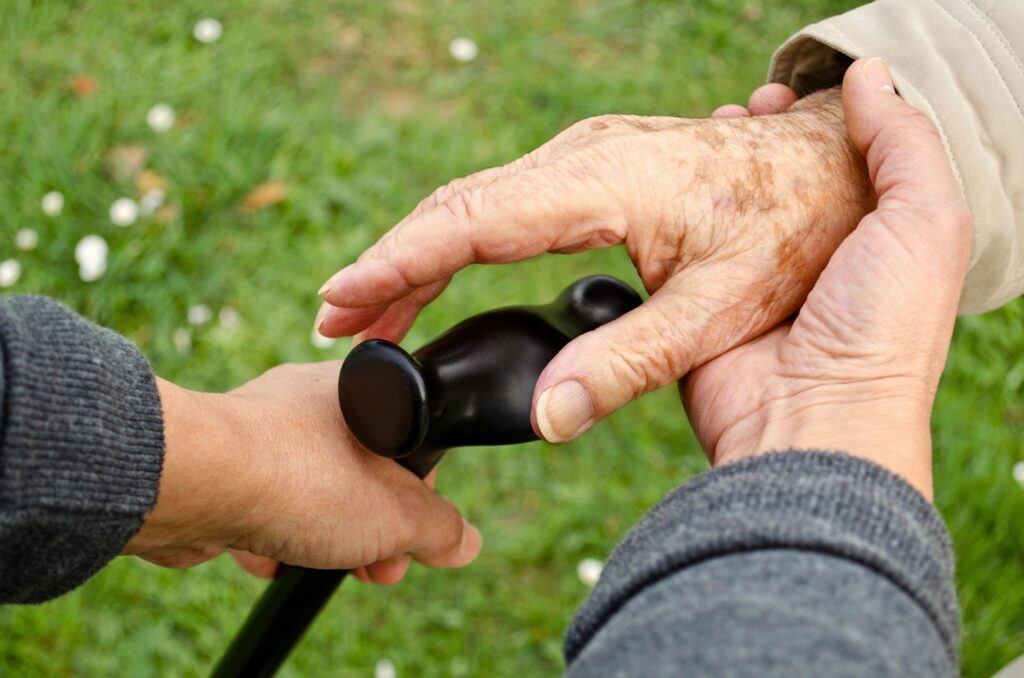Key Highlights of Journaling for Caregivers
- Journaling is a good way for caregivers to take care of themselves. It helps them think about their feelings.
- It gives them a safe space to share ideas, work through emotions, and find ways to deal with challenges.
- Writing about their experiences can lower stress, increase self-awareness, and provide helpful tips for caregiving issues.
- Journaling can also improve how caregivers talk and connect with their families.
- It is simple and flexible, making it fit easily into a caregiver’s daily routine.
How Journaling Can Benefit CareGivers

In the challenging and often emotional job of being a family caregiver, taking care of yourself is very important. Journaling is a simple but strong tool. It can help caregivers handle the difficult parts of their work. Also, it boosts their emotional well-being.
Journaling provides family caregivers a special way to share their thoughts and feelings. It helps them feel less stressed, worried, and overwhelmed while taking care of someone they love. Writing down their feelings allows caregivers to understand themselves better. It also gives them clear ideas and helps them find ways to handle their emotions.
Understanding the Role of Journaling for Caregivers
Family caregiving is a meaningful and emotional experience. It has happy times filled with love. However, it also comes with challenges, like sadness, stress, and frustration. Journaling can be a great help during this time. It allows caregivers to express their feelings while taking care of others.
Caregivers who journal often learn more about themselves and their emotions. This knowledge makes it easier for them to handle stress. It also helps them communicate better and set healthy boundaries.
A Gateway to Emotional Health
Taking care of your emotional health is very important for family caregivers. How they feel can affect how they care for others. Caring for someone can bring feelings like sadness, anxiety, or burnout. Journaling can help avoid these feelings. It is a good way to manage emotions well.
When caregivers write their feelings in a safe place, it helps them feel better. This practice can stop stronger emotional problems from occurring later. Journaling gives caregivers a chance to think about their experiences, understand what upsets them, and find healthy ways to cope.
Caregivers can feel better emotionally if they add journaling to their self-care. Writing in a journal helps them handle challenges and express their sadness. It also gives them a way to release strong feelings and discover small moments of peace while caring for others.
Enhancing Communication Skills
Effective communication is important for strong relationships. This is especially true when it comes to family caregiving. Sometimes, it can be tough to talk because of stress, changes in family roles, or dealing with a loved one’s health problems. Journaling can help family caregivers improve their communication skills.
When caregivers keep a journal, it helps them reflect on their talks with others. They can find out what affects their communication. This lets them explore new ways to connect better. Writing about their experiences can reveal feelings or reactions that influence how they get along with their loved ones.
This understanding can help them communicate better and be kinder. When family caregivers understand how they talk, they can find ways to improve. This helps them build stronger, more caring connections with the people they assist.
Practical Tips for Starting a Caregiver Journal
Starting a journaling practice is easy. You don’t need special skills or any past experience. It’s all about finding a place to share your thoughts and feelings. Here are some helpful tips for starting your caregiver journal.
- Pick a time and place that makes you feel relaxed and allows you to write. It can be just a few minutes each day, as long as there are no distractions.
- Keep in mind that there are no strict rules for journaling. This is your own area to discover what works best for you.
Choosing the Right Journal Format
Choosing a journal style that fits you is important for making a good journaling habit. Try out different types to find what feels best for you. This will help you share your thoughts more clearly.
Some people like to write with pen and paper. They feel happy doing it that way. Other people prefer digital journaling. This method is easy and quick. You can use your smartphone, tablet, or laptop to write at any time and from anywhere you like.
Here are a few popular journal formats:
- Traditional Notebook: This classic choice gives you a private space to write.
- Guided Journals: These come with prompts and questions. They help you think more deeply.
- Digital Journaling Apps: These tools are easy to use. They let you arrange your thoughts and add photos or voice notes.
What to Write: Ideas and Prompts
When you look at a blank page, it can feel confusing about what to write. Don’t worry; there is no right way to journal. This is your space to express your thoughts, feelings, and experiences.
Some days, you may want to write a long entry straight from your heart. Other days, a few bullet points or a short list of things you are thankful for might be enough. Here are some ideas and prompts to help you get started:
- Memorable Moments: Recall the special times you shared with your family member or the happy moments you enjoyed together.
- Gratitude List: Thinking about the good parts of caregiving, even the small ones, can boost your mood.
- Caregiving Challenges: Acknowledge tough feelings and experiences, and address them in a healthy way.
- Self-Care Strategies: Find activities or habits that bring you joy and reduce your stress.
The Psychological Benefits of Journaling

Journaling is more than just noting what happens in your life. It is a nice way to feel better. This is especially true for those with stressful jobs, such as caregivers.
Writing is calming and helpful for your mind. It allows you to organize your thoughts and feelings, especially during hard times. When caregivers write, they reflect on their emotions. This practice can aid them in coping with their feelings more effectively, reduce stress, and boost their overall health.
Stress Reduction Techniques Through Writing
Journaling is a simple and strong method to look after yourself and reduce stress. It helps family caregivers handle the special difficulties they encounter. Writing in a journal lets you share your thoughts, understand your emotions, and feel less worried.
When you write in a journal to feel less stressed, be kind to yourself. Let your thoughts and feelings come out without worrying about being perfect. You might like to practice some ways to relax before or while you write. Deep breathing or using pictures in your mind can help you feel calmer and feel better overall.
As you keep journaling, you may start to see patterns in your stress and the thoughts that keep coming back and make you feel anxious. Seeing these patterns can help you discover ways to manage your stress that are good for you.
Boosting Memory and Comprehension
Journaling is wonderful for our feelings, but it does more than that. It can help our brain work better, including memory and understanding. When we write, we use many parts of our brain. This makes the connections we need to remember things stronger. Writing also helps us arrange our thoughts in a clearer way. Because of this, we can remember details easily and connect ideas better.

For caregivers who feel stressed, journaling can be very helpful. Writing down important details, tasks, or medical information about their loved ones can create a useful memory tool.
This habit helps them remember things better. It also makes it easier to understand hard medical information or care plans.
Natural stress reducer.
Caregiving can feel nice and fulfilling. But, it can also be very hard and stressful. Family caregivers usually have a lot of tasks to handle. They feel strong feelings and face many challenges. Journaling is a great way to help reduce stress. It allows caregivers to handle their experiences in a good way.
Caregivers feel less stressed when they write about their thoughts and feelings. This simple practice can be comforting for them. It allows them to let go of strong emotions.
Caregivers can benefit from journaling. This practice helps them see what causes their stress, note negative thoughts, and identify unhelpful ways to cope. By understanding these problems, they can learn better ways to handle stress.
Insight provider.
Journaling can be very helpful for family caregivers. When they write about what they experience, feel, and think, they create an important record of their journey. Looking back at these entries helps caregivers learn more about themselves and their loved ones. It also helps them understand their relationships better.
Journaling helps caregivers think about their feelings and understand themselves better. It gives them a chance to pause from their busy routines. This practice allows them to see things more clearly.
This clear view can help a lot. It can lead to better choices in your life. It also helps you create stronger relationships. Plus, it gives you a strong sense of purpose when you face challenges in caregiving.
It is an opportunity to better understand yourself.
Being a family caregiver can be tough. In this role, you may forget to take care of yourself. Journaling can help with that. It allows you to connect with yourself. You can use it to reflect on your thoughts, feelings, and values. It provides a safe and private space for you to express yourself.
When you spend time writing, you can find strengths you didn’t know about. You may see what you need but have not noticed yet. This writing can also help you feel grateful for your skills. A better understanding of who you are can change your life. It helps you set good limits, focus on your health, and express your needs clearly.
Journaling for self-understanding helps you learn about yourself. It is a journey to find your true self.
Other health benefits
Journaling is good for our mind and emotions. Studies show it can help with other health issues, too. A lot of people think about the mental benefits at first. But the improvements in health also show how our thoughts, feelings, and body work together.
- Writing in a journal can help your immune system.
- It can make your sleep better.
- It may lower blood pressure.
Here are some more health benefits of journaling:
- Feel less anxiety and feel less depression
- A stronger immune system
- Better sleep quality
- Lower blood pressure
- Reduced chronic pain
There is no wrong way to do journaling.
One great thing about journaling is that it is flexible. It does not follow strict rules like other self-help methods. Journaling is personal and can fit your needs. There is no right or wrong way to do it. It is about finding what works best for you and your life.
- If writing a lot seems tough, begin with small steps.
- You could write a few bullet points or create a short list of what you are thankful for.
- Do not feel forced to write every day.
- Some people think it’s better to journal several times a week or whenever they want to clear their thoughts and feelings.
Keep an open mind and be curious when you journal. This journey is yours, and it helps you learn about yourself. Journaling can be a strong tool to improve your well-being as a family caregiver.






